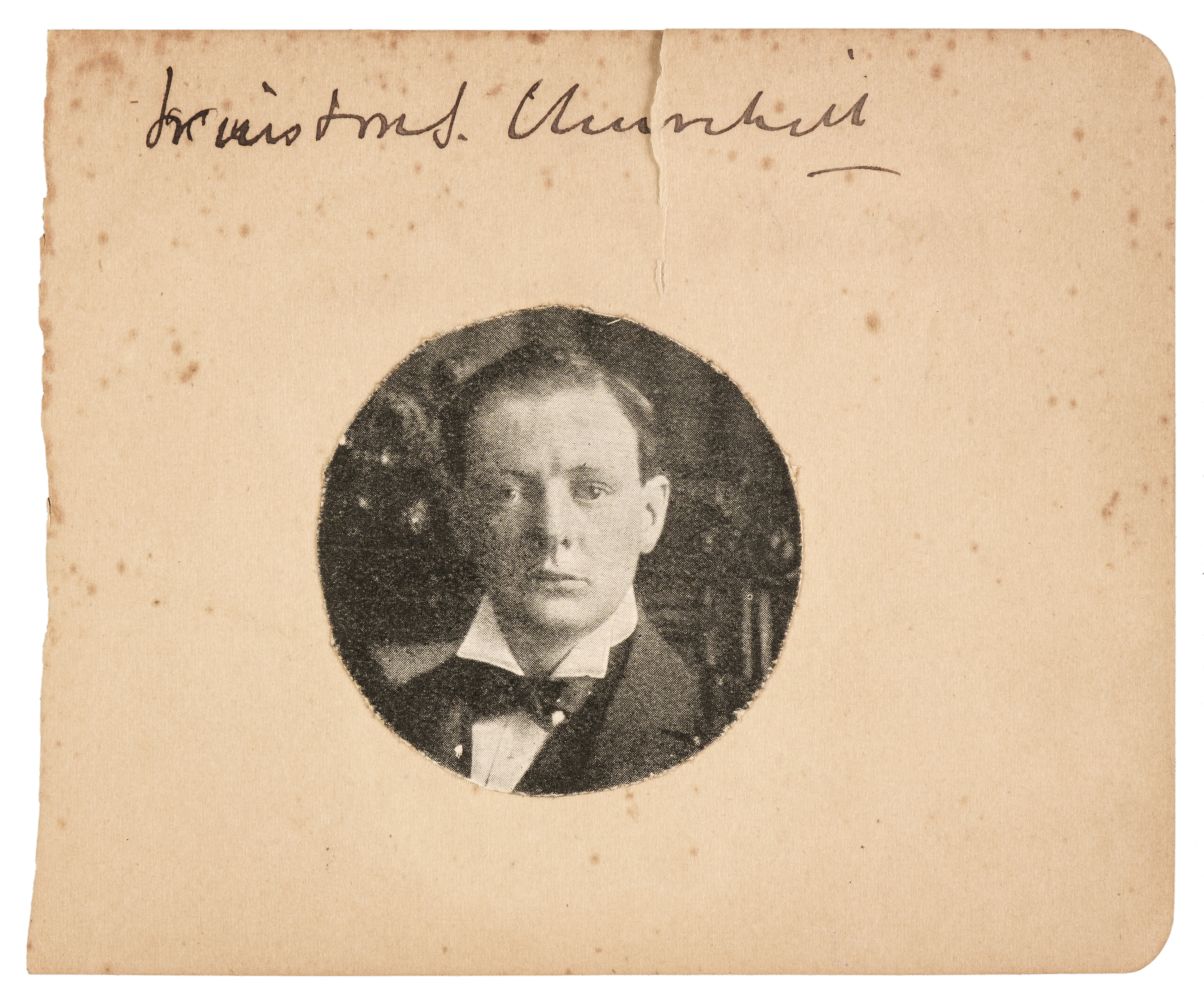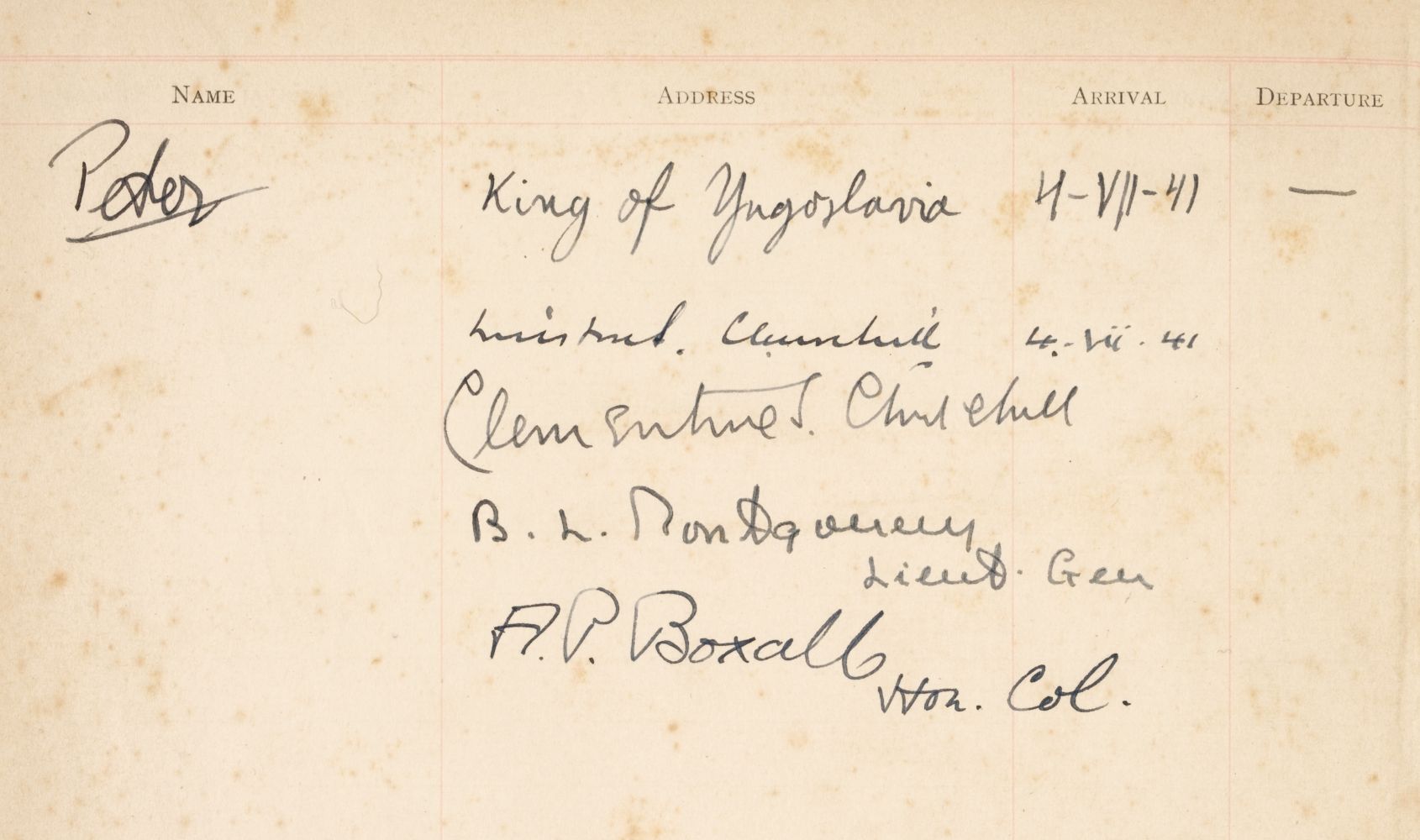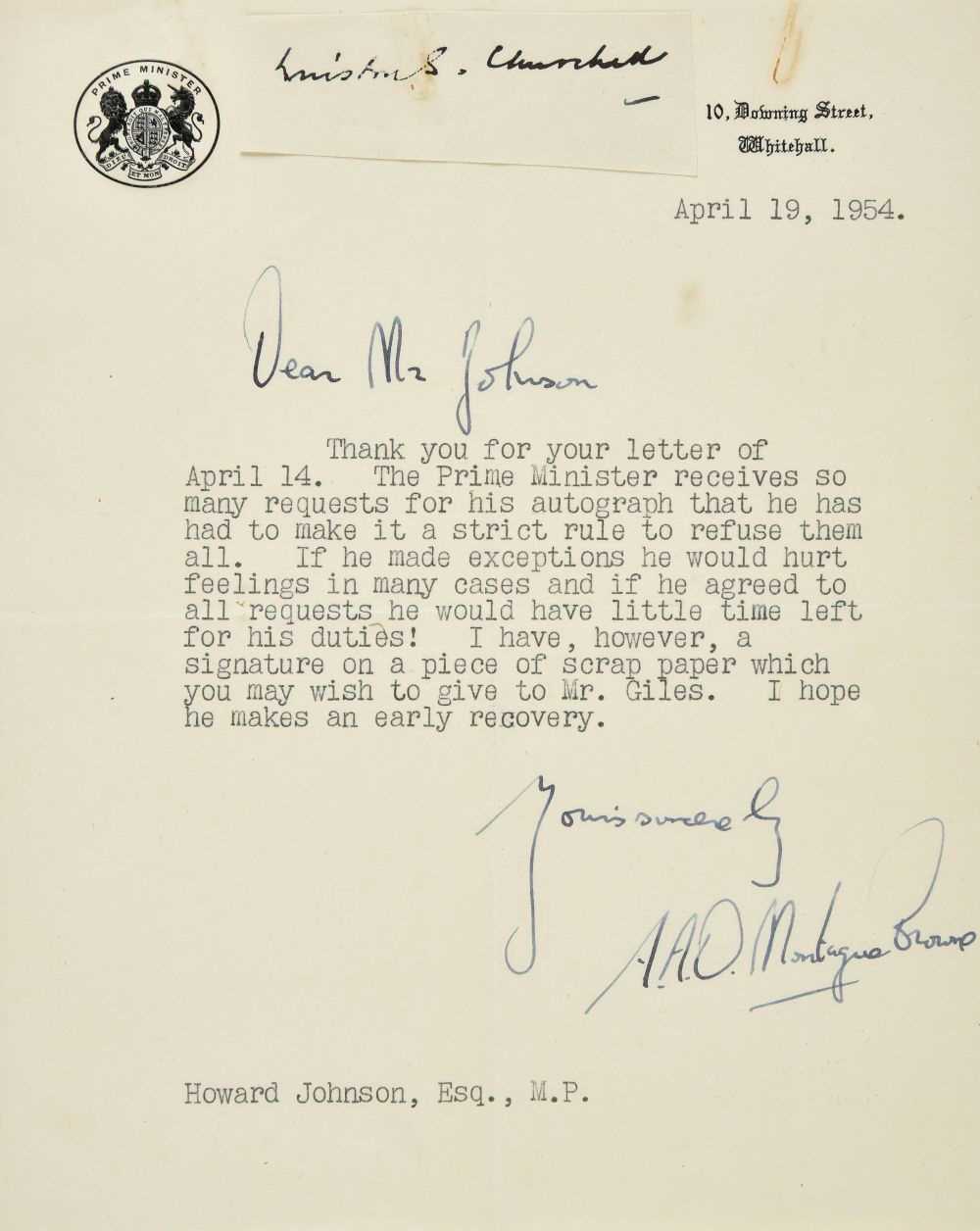CHURCHILL, Winston Spencer (1874-1965). Autograph letter signed to an unidentified correspondent ('Dear Madam'), 105 Mount Street [London], 30 November 1900, one page, 8vo, blank integral leaf (slightly soiled in upper margin, small traces of tape on verso of second leaf). An abrupt denial of an apparent claim that he had been assisted in his escape from prison after his capture by the Boers, 'Mr Godfrey, who was the Anglican clergyman in Pretoria, in no way assisted me to escape. On the contrary he adopted a violent anti-British attitude ...', and referring to Lord Robert's censure of Mr.Godfrey. Churchill, who had sailed for South Africa to report on the Boer war for the Morning Post, was captured by the Boers in the ambush of an armoured train, on 14 November 1899. He escaped from prison in Pretoria having insisted on joining his fellow prisoner, Captain Haldane, who with an Afrikaans-speaking sergeant-major, had devised a plan of escape. In the event, Churchill left without them, making his way by train to the border when he was assisted to travel on a goods train to Lourenco Marques and thence reached Durban. The stigma of having behaved badly followed him for some time, and may account for the sharp tone of the present letter. He returned to England in June 1900, and his account of his experiences, London to Ladysmith (1900), was based upon his despatches for the Morning Post. In October 1900 he was elected for Oldham, and in November embarked upon a lecture tour, speaking in Cardiff on 29 November, and leaving on 1 December (the day after the present letter was written) to lecture in America. The Reverend James Godfrey (b. 1861), to whose claim to have helped him escape he refers, was acting-vicar of St Alban's Cathedral in Pretoria. Churchill had previously criticised the Anglican chaplain at Natal for a sermon which he regarded as inappropriate on the eve of battle. The lot includes a letter dated 12 March 1954 from Churchill's Personal Private Secretary to Miss Hacquoil [the recipient of the letter described above], saying that Churchill cannot advise her on the question she has asked [she sought his permission to sell his letter]. Miss Hacquoil was a niece of Mr Godfrey, and appears to have written to Churchill in 1900 about her uncle's claim. (2)
CHURCHILL, Winston Spencer (1874-1965). Autograph letter signed to an unidentified correspondent ('Dear Madam'), 105 Mount Street [London], 30 November 1900, one page, 8vo, blank integral leaf (slightly soiled in upper margin, small traces of tape on verso of second leaf). An abrupt denial of an apparent claim that he had been assisted in his escape from prison after his capture by the Boers, 'Mr Godfrey, who was the Anglican clergyman in Pretoria, in no way assisted me to escape. On the contrary he adopted a violent anti-British attitude ...', and referring to Lord Robert's censure of Mr.Godfrey. Churchill, who had sailed for South Africa to report on the Boer war for the Morning Post, was captured by the Boers in the ambush of an armoured train, on 14 November 1899. He escaped from prison in Pretoria having insisted on joining his fellow prisoner, Captain Haldane, who with an Afrikaans-speaking sergeant-major, had devised a plan of escape. In the event, Churchill left without them, making his way by train to the border when he was assisted to travel on a goods train to Lourenco Marques and thence reached Durban. The stigma of having behaved badly followed him for some time, and may account for the sharp tone of the present letter. He returned to England in June 1900, and his account of his experiences, London to Ladysmith (1900), was based upon his despatches for the Morning Post. In October 1900 he was elected for Oldham, and in November embarked upon a lecture tour, speaking in Cardiff on 29 November, and leaving on 1 December (the day after the present letter was written) to lecture in America. The Reverend James Godfrey (b. 1861), to whose claim to have helped him escape he refers, was acting-vicar of St Alban's Cathedral in Pretoria. Churchill had previously criticised the Anglican chaplain at Natal for a sermon which he regarded as inappropriate on the eve of battle. The lot includes a letter dated 12 March 1954 from Churchill's Personal Private Secretary to Miss Hacquoil [the recipient of the letter described above], saying that Churchill cannot advise her on the question she has asked [she sought his permission to sell his letter]. Miss Hacquoil was a niece of Mr Godfrey, and appears to have written to Churchill in 1900 about her uncle's claim. (2)







.jpg)




.jpg)


Testen Sie LotSearch und seine Premium-Features 7 Tage - ohne Kosten!
Lassen Sie sich automatisch über neue Objekte in kommenden Auktionen benachrichtigen.
Suchauftrag anlegen